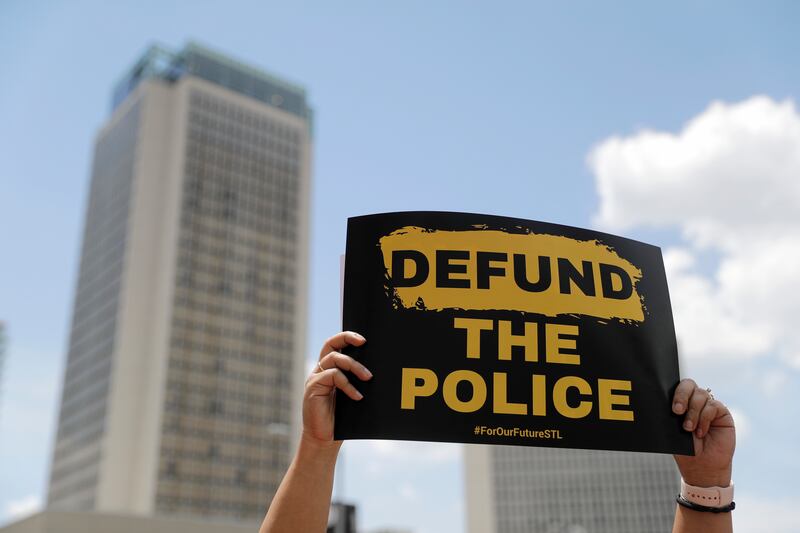I was disheartened to read Richard Snelgrove’s recent op-ed in the Deseret News. It demonstrated a deep misunderstanding about what activists mean when they say “defund the police.” More troublingly, this misunderstanding represents the kind of willful ignorance that has — for centuries — held us back from truly addressing police violence and racial discrimination.
No one is demanding that we abandon the rule of law and succumb to anarchy, as Mr. Snelgrove implied. “Defund the police” means “reallocate funds from the enormous police budget into other forms of public safety.” I believe this unfair and inaccurate characterization is willful because there are literally hundreds of explainers detailing the eminently reasonable policy goals that fall under the banner of “defunding the police,” just one Google search away. Unfortunately, this misrepresentation of his constituents’ demands is just the tip of the ignorance iceberg.
Councilman Snelgrove wrote that “in the United States we can rest assured that the police cannot make an arrest without due process of law.” Breonna Taylor was killed by the police in her own apartment by officers executing a no-knock raid, in plainclothes, at 1 a.m., at the wrong address, searching for someone that was already in custody. Botham Jean was killed by an off-duty police officer who trespassed into his apartment, apparently mistakenly, and in a split second ended his life. Twelve-year-old Tamir Rice was killed by police for playing with a pellet gun.
What due process were Taylor, Jean and Rice afforded? Could Mr. Snelgrove look their families in the eye and still claim, “we can all feel a little more comfortable in our daily lives knowing that (the police) are there?”
The article said 22,217 police officers have been killed in the two centuries since 1786. Our police have killed that many civilians in just two decades. Every year since 2005, police have been involved in more than 1,000 fatal encounters. We look downright barbaric compared to other western democracies: In 2019, Australian police killed 21 people. German police killed 11 people. Police in England and Wales killed just 3. U.S. police killed 1,099. In per capita terms, U.S. police killed at 3.95, 25.7 and 67 times the rate of officers in Australia, Germany and England and Wales, respectively.
This barbarism is exacerbated by racism. Between 2009-2012, Black Americans were killed by police at 2.8 times the rate of white Americans. In 2019, Black people were 24% of those killed by police while comprising only 13% of the population.
Quoting a local police chief, Mr. Snelgrove wrote, “there’s nothing that makes good cops madder than bad cops.” Yet, three officers protected Derek Chauvin as bystanders begged him to stop. Where was the righteous rage from these ostensibly good cops? Why didn’t they intervene? Where was their anger the previous 17 times Chauvin received complaints?
If the good cops are so infuriated, why do we still have to see videos in 2020 that remind us of the horrific 1991 beating of Rodney King? If the good cops are so incensed, why — six years after Eric Garner was strangled to death — did we all have to witness George Floyd’s asphyxiation? If good cops are really committed to saving us from bad cops, why have we seen so many videos of police brutalizing protesters and so few consequences?
The system that consistently protects Chauvin and officers like him is an accomplice to murder, regardless of how mad the good cops are.
Throughout his article, Mr. Snelgrove invokes fear as he asks Utahns to imagine a world without police. Who will save the drowning babies? Who will stave off anarchy? Who will protect our communities? But, for so many of our black and brown citizens, the answer to these questions has never been the police. The police do not make everyone safer. The police kill some people’s babies. The police destroy some people’s communities.
I am begging Mr. Snelgrove to extend the human empathy he asked us all to feel for Nathan Lyday’s family to the families of George Floyd, Tamir Rice, Breonna Taylor and others whose lives have been destroyed — not saved — by those called to “protect and serve.”
As the city council in Minneapolis acknowledged, attempts at incremental reform such as banning chokeholds and mandated body cams have failed. Indeed, body cameras did not protect Patrick Harmon or Bernardo Palacios-Carbajal from being killed by the Salt Lake Police Department.
These minor reforms are like putting a Band-Aid on a gunshot wound. Surgery is required, and that means dramatically reimagining public safety to build a system that truly — and equally — protects all our citizens.
Tyler Bettilyon is a writer, software engineer and educator from Salt Lake City.

